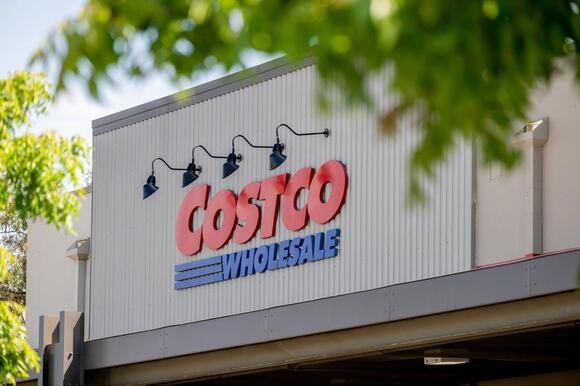CHICAGO — An Illinois-based educational toy company is asking the U.S. Supreme Court to fast-track a decision that could shake the foundations of America’s trade policy. Vernon Hills’ Learning Resources Inc., known for its STEM-based products like Botley the Coding Robot, is challenging former President Donald Trump’s use of emergency powers to impose sweeping tariffs — and the company says the stakes couldn’t be higher.
A Long Shot Case With National Implications
The company’s appeal, filed this week, seeks to bypass standard judicial procedures and leapfrog directly to the nation’s highest court. The central argument: Trump’s emergency tariff authority was unconstitutional because it circumvented Congress.
CEO Rick Woldenberg argues the ongoing tariff environment is creating untenable uncertainty for businesses like his — especially as they head into critical sales seasons. “We do not have a choice,” he told the AP. “All the people that are raising their prices are doing it with a sense of dread.”
What the Tariff Dispute Is Really About
At issue are the emergency powers Trump invoked to justify tariffs on Chinese imports. The administration argued the U.S. trade deficit posed a national emergency, which allowed unilateral action. Critics — including Learning Resources — say that’s an abuse of power.
-
Legal Background: Lower courts have split on the issue. Learning Resources won an early ruling, but it was stayed pending appeal.
-
Urgency: The appeals court isn’t scheduled to hear related arguments until late July, which the toy company claims is too late for an industry that relies on back-to-school and holiday sales cycles.
Why This Case Matters to Small and Mid-Sized Businesses
Learning Resources’ case isn’t just about toys — it’s about how tariffs impact small businesses across the country. Companies are now struggling with:
-
Increased Costs: Items that once sold at stable prices now come with significant tariff-related markups.
-
Unstable Supply Chains: Businesses are diverting resources to shift suppliers away from China.
-
Budget Uncertainty: Planning is difficult when tariffs may change without warning.
In court filings, Learning Resources emphasized the “massive impact on virtually every business and consumer across the Nation.”
Trump’s Tariffs: A Recap
During his presidency, Donald Trump imposed tariffs on billions of dollars’ worth of Chinese goods. His administration justified the move using the International Emergency Economic Powers Act (IEEPA), a law typically reserved for national crises.
According to White House spokesperson Kush Desai, the administration acted legally and responsibly. “The Trump administration is legally using the powers granted to the executive branch by the Constitution and Congress to address our country’s national emergencies,” he said.
Supporters say the tariffs have helped bring factories back to the U.S. and reduced reliance on foreign imports. Critics argue the costs are being passed on to consumers and small businesses.
Local Roots, Global Stakes
Learning Resources, a family-owned company, produces educational toys like:
-
Pretend & Play Calculator Cash Register – $43.99
-
Botley the Coding Robot – $57.99
Though the products are sold across the country, most are manufactured in China, putting the company at direct risk under current tariff policies. CEO Rick Woldenberg says shifting supply chains is expensive, slow, and full of uncertainties.
“We’re putting enormous resources into relocating manufacturing, but this isn’t a simple task,” he said.
What Happens If the Court Doesn’t Take the Case?
If the Supreme Court declines to intervene, Learning Resources will likely have to wait for the case to run its course through the appeals process — a months-long delay that could affect critical revenue periods.
This delay could:
-
Harm employees and suppliers caught in budget freezes
-
Further increase consumer prices
-
Create market volatility as other small companies consider similar lawsuits
Why This Case Could Set a Precedent
Legal experts note that while emergency powers have been used in trade before, rarely have they been applied so broadly without Congressional input. If the Supreme Court hears the case and rules against Trump’s use of emergency authority, it could restrict future presidential powers over trade.
This could:
-
Reinforce the role of Congress in economic policy
-
Limit abrupt changes in tariffs and duties
-
Provide businesses with greater predictability and planning ability
Consumer Impact: Why You Should Care
If you’ve noticed rising prices on toys, electronics, or even kitchenware, there’s a good chance it’s tied to tariff-related supply chain disruptions.
This case underscores:
-
How federal trade policy trickles down to local prices
-
Why Illinois-based companies matter in national litigation
-
How judicial decisions can affect what families pay during the holidays
What Comes Next?
The Supreme Court has not yet indicated whether it will take up the case early. If it declines, the appeal continues in lower courts, with oral arguments expected in late July. A ruling may not come until late 2025 or early 2026.
Until then, companies like Learning Resources — and countless others — remain stuck in economic limbo.
Are you a local business owner affected by tariffs or trade regulations? Share your story at ChicagoSuburbanFamily.com — where we report on the real-world impact of national policy on everyday Illinois residents.














